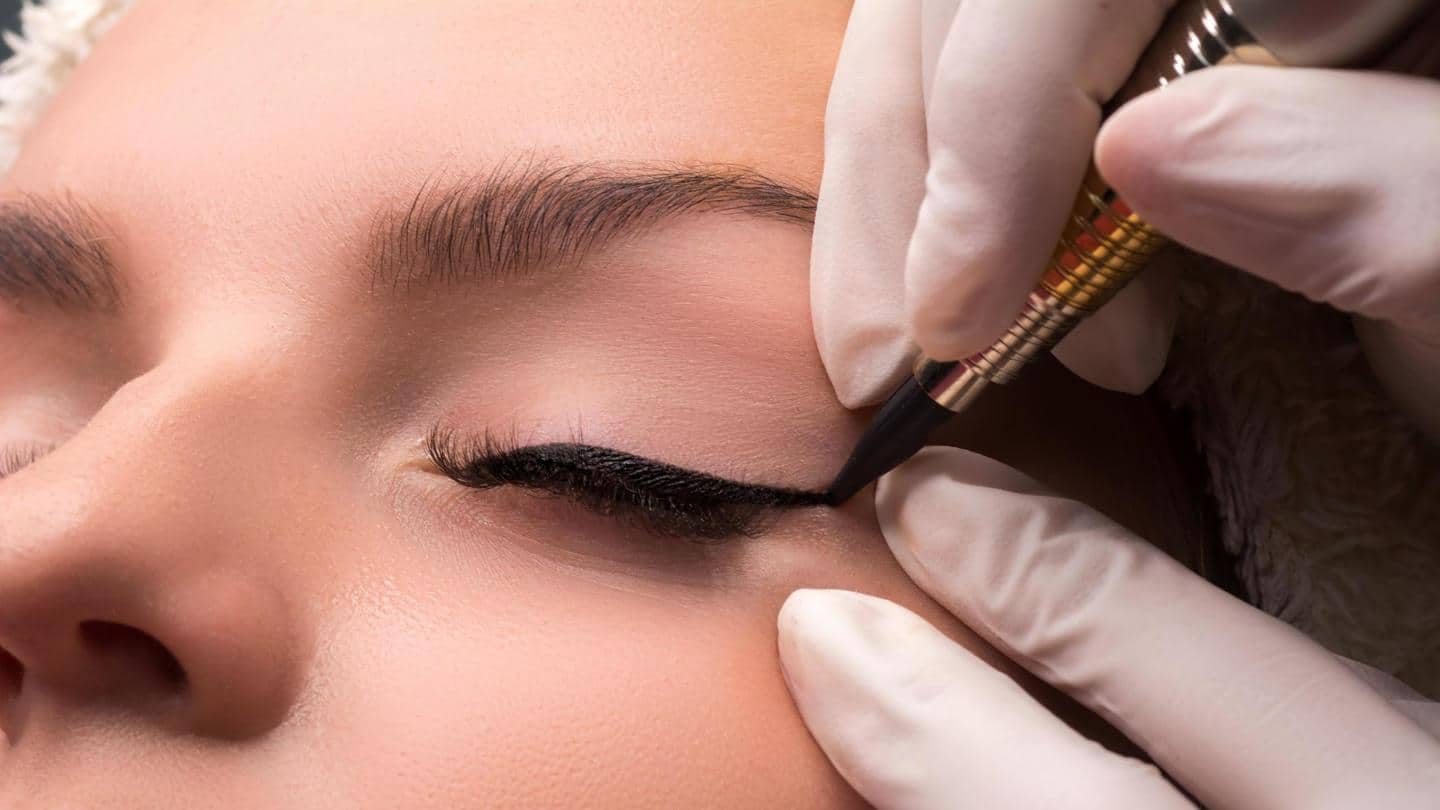
Here's how to use eye cosmetics the right way
What's the story
Our eyes are very sensitive vital organs, and we must do everything in our power to protect them. But does that limit our creativity with makeup?
With Halloween knocking on the door, you might want to try some crazy looks, but be careful of how they may affect your eyes.
Are you using glittery and neon eyeshadows, eyelash extensions, and other makeup safely?
Information
Cosmetics for eyes
Cosmetics meant for eyes and the area around them are usually safe, but there are some products that are not safe, and applying them or not using them correctly can aid the growth of dangerous bacteria or fungi leading to an infection.
Health concerns
Toxic chemicals can lead to dry eye disease
"Makeup is supposed to make you look beautiful, but that temporary beauty comes at a cost when you consider the toxic chemicals present in products of most brands of eye shadows, liners, mascaras, makeup brushes, eyelash curlers, and false-lash adhesives," says, makeup artist Riya Monga.
Using such chemicals can lead to red, scaly eyelids, blood-shot eyes, dry eye disease, and serious long-term health conditions.
Quote
Avoid products with any of these toxic chemicals
"Eye cosmetics are required to have an ingredient declaration on the label. Toxic chemicals like carbon black, ethanolamine compounds, aluminum powder, prime yellow carnauba wax, parabens, benzalkonium chloride (BAK), and heavy metals should not be present in your makeup products," says Monga.
FDA-approved ingredients
Not every pigment is suitable for your eyes
Keeping in mind the lawsuit against Huda Beauty's Neon Obsessions palette, it must be remembered not all pigments are safe for the eye area.
"Eyeshadows are composed of FDA-approved ingredients; pressed pigments are not approved by the FDA for eye application. Various pigments found in high-end cosmetic brands are legally not approved," explains Monga.
"Neon shades have properties of staining and itching," she adds.
Tread carefully
Monga's advice on using eye makeup the right way
Discard all your eye makeup products after every 2 years.
Do not share eye makeup, conjunctivitis and other eye infections are highly contagious.
Check the label to see if all ingredients are FDA-approved.
Only apply eyeliner and eyeshadow outside the eyelid. Avoid using kohl on your inner eyelids.
Be very careful if you wear glittery eyeshadow, avoid using metallic glitter near the eyes.
Basics
Experts advice on dealing safely with makeup
Dr. Aditya Sharma, eye specialist, and surgeon, Amar Shakti Clinic, advises not to sleep with eye makeup on since the pigment starts depositing and can cause allergic reactions.
"People can be allergic to certain elements in a product, so introducing one new product at a time is a smart move," he suggests.
Applying makeup while on the move can cause scratches on the eye.
Eyelashes
Care for your eyelashes
Artificial lashes should be applied with the help of professionals as they are glued on or have a magnetic fix.
Frequent use of heated eyelash curlers can damage the lashes.
"Our eyelashes are not only a sign of beauty but also protect our eyes from dirt. They prevent our eyes from drying out by blocking air movement over our tear films," explains Dr. Sharma.
Eye care
How to get rid of any product from your eyes
When makeup gets in the eyes, it causes redness and discomfort.
If the surface of your eye is scraped with an infected brush or cosmetic pencil, it may threaten your vision.
In such cases, thoroughly cleanse your eyes with water or an eye-wash solution.
Remove your contact lenses first, and clean them with lens solution. Wear them only after the irritation has subsided.